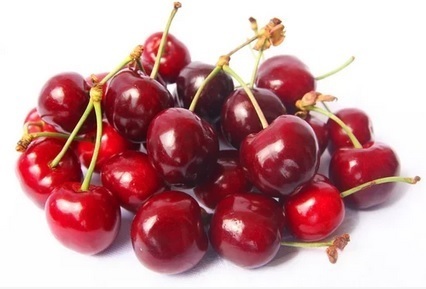Vegetable exports. Polish vegetables are the healthiest
The export of vegetables from Poland plays a significant role in the national economy as well as in international trade. Thanks to favorable climatic conditions, a large area of agricultural land, and the experience of farmers, Poland has become one of the leading producers of vegetables in Europe. In 2023, the total area dedicated to vegetable cultivation in Poland was about 200,000 hectares, with total vegetable production estimated at 4.5 million tons. The production increase has been noticeable in recent years, contributing to an increase in exports, which reached a value of over 1.2 billion euros in 2023.
Among the most frequently exported vegetables from Poland are onions, carrots, cabbage, cucumbers, and tomatoes. Onions, with over 500,000 tons exported, accounted for about 30% of total vegetable shipments. Polish onions have gained recognition in foreign markets primarily due to their high quality and competitive prices. The second most important exported vegetable was carrots, with around 300,000 tons exported. Polish carrots enjoy high demand in neighboring countries, such as Germany, the Czech Republic, and Slovakia.
It's also important to note that the vegetable export market from Poland is not limited to European countries. More and more Polish producers are seeking sales opportunities in non-EU markets. In 2023, Poland exported vegetables to countries such as Ukraine, Moldova, and even the United Arab Emirates, where demand for fresh vegetables is growing. In particular, for cucumbers and tomatoes, Polish producers have noted increased interest in the Middle Eastern countries.
Despite the successes, the export of vegetables from Poland faces various challenges. Among them is the decreasing availability of labor in agriculture, which affects production efficiency. In recent years, many farms have struggled with a lack of workers, which, combined with rising production costs, may impact future export results. Additionally, climate change, with extreme weather events, may influence the quality and quantity of harvests.
To enhance the competitiveness of Polish vegetable exports, innovations in cultivation technology and logistics are essential. In recent years, many farms have invested in modern growing methods, such as hydroponics and protected cropping systems, allowing for more efficient year-round production. An example is the development of tomato cultivation in greenhouses, enabling earlier harvests and better-quality products.
Poland has also invested in the development of transportation infrastructure, which is crucial for exports. The increase in the number of modern cold storage facilities and warehouses adapted for storing vegetables makes it possible to transport products over longer distances, increasing their availability in foreign markets. Efficient logistics allow for quick delivery of fresh vegetables to customers, which is significant in light of growing competition in the European market.
Poland also benefits from favorable trade agreements that facilitate vegetable exports to many countries. Membership in the European Union opens doors to European markets, and preferential trade conditions with third countries become crucial for Polish producers. The Polish government and industry organizations actively support producers in seeking new markets and promoting Polish vegetables at international fairs.
In 2024, the forecasts for vegetable exports are optimistic, with an expected growth of 5-10% compared to 2023. However, much will depend on the situation in international markets and local production conditions. Good production results and price stabilization could contribute to further export growth.
In summary, the export of vegetables from Poland is a dynamic sector that not only contributes to the growth of the national economy but also gains recognition in international markets. The challenges facing the sector can be overcome through innovations, investments in infrastructure, and marketing strategies that support Polish producers in capturing new markets. In the long-term perspective, the development of vegetable exports from Poland could become a key factor influencing the stability and growth of the agricultural sector and the entire economy.
- Economy
- Export
- International cooperation
- Construction sector - Joinery, engineering and building architecture
- Agriculture, Food
- Regional development, investment in Poland
- What's worth knowing
Agriculture, Food
Vegetable exports. Polish vegetables are the healthiest

Source: https://www.poland-export.com/

See also:

Chocolate and chocolate products from Poland
For years, Poland has been strengthening its position as one of the key exporters of chocolate products in Europe. Chocolate exports constitute an important segment of Polish foreign trade and cover a wide range of chocolate products

Cherry Export. Polish Cherries Around the World
The export of cherries from Poland is playing an increasingly important role in the international fruit market.

Cosmetics export. Cosmetics from Poland
The export of cosmetics and toiletries from Poland is developing at a dynamic pace, thanks to which Poland has gained the status of one of the leaders in the production and sale of these products in Central and Eastern Europe

Export of Windows: Window Joinery from Poland
Poland has been playing an important role on the international window market for many years, being one of the largest window exporters in the world.

FTA - Free Trade Agreements: Do They Exist and Can They Lower Tariffs?
Free Trade Agreements (FTAs) are key tools in international trade policy, aimed at reducing trade barriers...
Help needed ?
If you have not found the desired product, company, service or the searching results are not satisfactory for you, do not hesitate to contact us and tell what you are looking for or what you need. We will send your inquiry directly to the interested companies.
Write to us

 pl
pl  en
en  de
de  es
es  fr
fr  it
it  pt
pt  ru
ru  sv
sv 

















.jpg)


